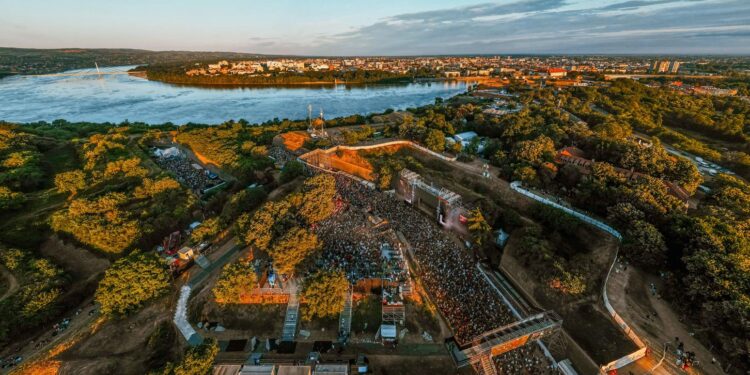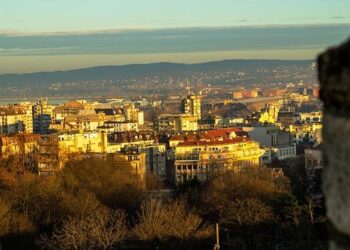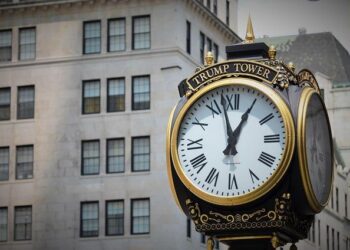EXIT Festival, one of Europe’s most renowned music events, has announced that its upcoming edition will be its final installment in Serbia. The decision comes amid growing concerns over increasing undemocratic pressures and restrictions on freedom of expression within the country. Celebrated for its vibrant atmosphere and cultural impact since its inception, EXIT has long been a symbol of artistic freedom and progressive values. This announcement marks the end of an era for the festival and raises broader questions about the state of democracy and civil liberties in Serbia.
EXIT Festival Announces Final Serbia Edition Highlighting Rising Undemocratic Challenges
In a poignant announcement that reverberates beyond Serbia’s borders, EXIT Festival has declared that its upcoming event will mark the final edition on Serbian soil. This decision emerges amid mounting concerns over increasing undemocratic constraints affecting artistic expression and civil liberties in the region. Organizers emphasize that the festival’s legacy has always been deeply entwined with freedom and youth empowerment, values now perceived as under siege. The upcoming edition, titled “For Freedom!”, seeks to stand as a defiant statement against rising censorship and political pressures, spotlighting artists and voices advocating for democracy and human rights.
As the festival prepares to close this chapter, key features have been announced that underscore its resistance theme:
- Curated line-up: Artists known for activism and socially conscious messages.
- Panel discussions: Forums addressing media freedom, democratic erosion, and youth activism in the Balkans.
- Community engagement: Workshops promoting civic participation and resilience.
EXIT Festival’s final Serbia edition symbolizes more than just an entertainment event; it represents a cultural stand against authoritarianism-a call to preserve open society ideals amid challenging political tides.
| Aspect | Impact | Festival Response |
|---|---|---|
| Media Censorship | Restricted information flow | Dedicated panel talks and live social media broadcasting |
| Artistic Restrictions | Pressure on creative freedom | Selected lineup of politically charged performances |
| Public Demonstrations | Increased government scrutiny | Workshops on peaceful activism and rights education |
Exploring the Impact of Media Suppression on Cultural Events in Serbia
The recent announcement that the iconic EXIT Festival will hold its final edition in Serbia shines a harsh light on the growing challenges faced by cultural events in the region, particularly under increasing media suppression. As press freedoms contract, organizers report heightened difficulty in securing fair coverage and navigating the evolving landscape of censorship and political pressure. This environment not only stifles the festival’s ability to promote a message of freedom and unity but also threatens the vitality of Serbia’s broader cultural scene, which has long been a beacon of diversity and artistic expression amidst political adversity.
Key factors contributing to this trend include:
- Limited access to independent media platforms for artists and promoters.
- Government and institutional influences curbing journalistic freedom.
- Self-censorship among media outlets wary of repercussions.
- Declining international media interest due to restricted reporting conditions.
| Year | EXIT Festival Attendance | Positive Media Coverage (%) | Press Freedom Index Rank |
|---|---|---|---|
| 2018 | 200,000 | 78% | 59 |
| 2021 | 150,000 | 45% | 93 |
| 2023 | 130,000 | 32% | 110 |
These figures illustrate a troubling correlation: as press freedom diminishes, media support for culturally significant events weakens, directly impacting public engagement and attendance. The EXIT Festival’s decision reflects not only the pressures faced by cultural institutions but also raises urgent questions about the future of open artistic expression in an environment where information is heavily controlled. For creative communities across Serbia, this signals a critical moment in the battle for democratic values and the preservation of cultural heritage.
Recommendations for Protecting Artistic Freedom Amid Increasing Political Pressures
Amid growing political interference in creative spheres, safeguarding artistic freedom calls for a multifaceted approach. Support from independent cultural institutions and international coalitions remains crucial in providing platforms for artists to express dissent without fear of censorship or reprisal. Governments and stakeholders must recognize the intrinsic value of creative expression as a cornerstone of democratic societies, ensuring that legal frameworks protect rather than restrict artistic endeavors.
Practical steps to reinforce artistic autonomy include the following:
- Investment in diverse funding sources to reduce dependence on politically influenced bodies
- Legal safeguards that criminalize censorship and undue political pressure
- Educational programs promoting artistic freedom and human rights awareness
- Documentation and transparency of incidents where freedom of expression is threatened
| Key Stakeholders | Recommended Action |
|---|---|
| Artists & Creators | Engage in collective advocacy and international networks |
| Governments | Implement protections to shield artistic work from censorship |
| Civil Society & NGOs | Monitor violations and support victims of repression |
| International Bodies | |
| International Bodies | Facilitate cross-border collaboration and apply diplomatic pressure against censorship |
If you want, I can also help you enhance the styles or improve accessibility for this section. Just let me know!
Key Takeaways
As EXIT Festival prepares for its final chapter in Serbia, the event’s closure underscores the mounting challenges faced by cultural institutions under increasing political and media pressures. Once a symbol of youthful defiance and regional unity, EXIT’s farewell signals a cautionary moment for artistic freedom in the region. Industry observers and fans alike will be watching closely, as the festival’s departure from Serbia marks not just the end of an era, but a poignant reflection on the complex interplay between culture and democracy in today’s landscape.
















